Exynos 8 Octa 8890 is Samsung's answer to Snapdragon 820
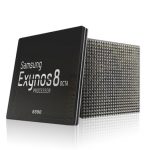
It looks like Samsung will continue to use its own Exynos chipsets in its next premium Android devices, as it has just announced a new flagship mobile processor. Called Exynos 8 Octa 8890, it is Samsung's answer to Qualcomm's mighty Snapdragon 820.
Samsung says that Exynos 8 Octa 8890 will go into production by the end of the year, so it is very likely that it will be used in Galaxy S6's successor -- likely called Galaxy S7 -- which will probably debut in the first quarter of 2016. Let's take a look and see what Exynos 8 Octa 8890 brings to the table.
Qualcomm takes the wraps off Snapdragon 820 -- here are the performance figures
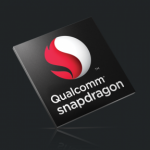
Qualcomm has officially unveiled its new flagship mobile processor, Snapdragon 820. The new chip promises major improvements in performance across the board, like 40 percent faster graphics compared to Snapdragon 810, and supports new technologies, such as Wi-Fi 802.11 ad.
The CPU inside Snapdragon 820 has four cores running at up to 2.2 GHz, and is touted to offer twice the performance and efficiency of Snapdragon 810's CPU. This leads to a decrease of up to 30 percent in energy consumption compared to its predecessor, which has been reported to run a bit too hot.
Mozilla lets you experience Firefox OS 2.5 Developer Preview as an Android launcher
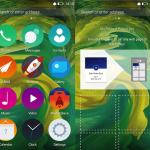
Convincing smartphone users to try a different operating system is no easy task as it typically means they have to get a new smartphone that runs it. But Mozilla has gotten around this by making Firefox OS 2.5 Developer Preview available to those rocking an Android device as a launcher.
Android users who want to give the developer preview of Firefox OS 2.5 a go basically have to download the app from Mozilla, install it and then select the appropriate launcher. Unlike a typical Android launcher, Mozilla's offering changes pretty much everything to match the upcoming Firefox OS 2.5, including the settings menu and notifications panel.
Twitch flips the switch on two-factor authentication

Enabling two-factor authentication is a simple and effective way to beef up the security of your online accounts. Also known as 2FA, it introduces an additional step in the log in process, which typically requires the user to enter a code received via SMS or retrieved from an app, after their password is validated.
To take advantage of two-factor authentication the services that you use have to offer this feature, which is not always the case. But, as far as Twitch is concerned, two-factor authentication is no longer missing from the options.
Xiaomi's new Mi Band 1s offers a heart rate sensor for less than $16
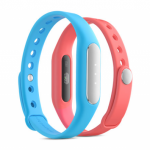
Xiaomi has taken the wearables market by storm with Mi Band. The unassuming fitness tracker arrived more than a year ago with a price tag shy of $30 but with a feature set that rivals other offerings costing more than three times as much. Thanks to sales of over 10 million units, it has turned the ever-growing Chinese company from the new kid on the block into the third-largest wearables maker.
But, in the time following the launch of Mi Band, Xiaomi's competitors have diversified their lineups, introducing new models with novel features that make it seem a bit dated in comparison. Enter the second-generation Mi Band, called Mi Band 1s.
Marshmallow running on 0.3 percent of Android devices

Since a new version of Android is initially available only on a handful of devices, most of which feature a Nexus logo on the back, you can expect its market share to be extremely low in the first few months following its release. Lollipop, for instance, needed over two months to break past the 0.1 percent barrier -- and we are only talking about Android land here.
The latest version of Android, however, is already proving to be way more successful. In just a month, Marshmallow has reached 0.3 percent of Android devices. This adoption figure comes from Google's Android distribution share chart, which was just updated with data collected in the seven days ending November 2.
Is OnePlus 2 the flagship killer you've been waiting for? [Review]
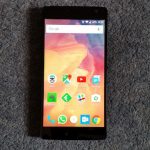
Top-end specs, a large screen, near-vanilla Android, and a price tag on the South side of $400 make OnePlus 2 a force to be reckoned in the battle for the "Smartphone of the year" award. It certainly has what it takes to get consumers' attention, as over four million reservations were made in the first couple of weeks after launch. But, hype can only get the "2016 flagship killer" so far. Question is, does it live up to it?
I have used a OnePlus 2, in 64GB trim, as my daily driver for well over a month now to find out whether it is worthy of its self-given title, and how it stacks up against some of the flagships it has in its sights, like Apple's bigger iPhone.
Google's Nexus 6P bends too easily, and there's no excuse for that

Bend tests have become a talking point after Apple's iPhone 6 Plus was found to have issues in this department. So, whenever a new flagship smartphone comes out, you can expect someone to make a YouTube video showing how easily -- or not -- it can be bent. They have become so popular that reviewers can expect millions of views.
And because such tests are a given, manufacturers are also expected to learn from others' mistakes and come up with smartphone designs that fare well in these kind of conditions. So, you can imagine my surprise when I saw Google's new Nexus 6P bending -- and, as a result, breaking -- with very little effort. Has its manufacturer, Huawei, learnt nothing from Apple's mistake?
Innerexile's new iPhone case self-heals in less than a second

Innerexile, the company that makes self-healing cases and screen protectors for various Apple products, has been busy designing a new self-healing iPhone case that will repair itself even more quickly than its predecessor. The model that it supersedes already performs quite well in this regard, so how can the new case top it?
Innerexile claims that its new iPhone case is able to self-heal from more severe scratches in less than a second, which is quite impressive. It is also advertised to be less slippery than its predecessor, which I found to be problematic in this regard. Does it live up to those claims?
OnePlus introduces accidental damage coverage -- will you get it?

No matter how careful you are with your smartphone, accidents can happen. And when bad luck strikes, having accidental damage coverage can make the difference between a huge repair bill -- or, even worse, being forced to buy a new smartphone -- and having it replaced with a new one, typically after paying a much easier to swallow deductible.
In trying to make its smartphones more appealing and give its prospective customers some peace of mind, OnePlus has announced a new accidental damage coverage for those who purchase its OnePlus 2 flagship and OnePlus X mid-ranger.
Google is 'very committed' to Chrome OS, questioning Android merger rumors

Google is rumored to be planning a merger of Android and Chrome OS. An early build of the combined operating system is expected to see the light of day as early as next year, with an official release making its way in 2017. That's what a so-called "report" claims anyway.
Such a plan would certainly make sense, considering that Chrome OS has limited appeal while Android has matured nicely, becoming the most-popular mobile operating system. So, how does Google comment? Well, the search giant continues to stand by its less-popular operating system. What else do you expect?
OnePlus X launches with premium design, mid-range specs and $249 price tag
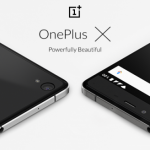
OnePlus is taking a break from challenging flagships, as today the company announces its first mid-range smartphone. Called OnePlus X, it sports a premium design, competitive hardware specifications and a price tag of just $249. In keeping up with tradition, it too will require an invite come purchase time, but this is said to only last for the first month after going on sale.
The lower price tag -- compared to the OnePlus 2 flagship -- might lead you to believe that OnePlus X is lacking in the hardware department, but the new smartphone is actually quite impressive in terms of specs. You get quite a lot more than the price tag might suggest.
Samsung announces 18.4-inch Android tablet -- but why?

Samsung does not shy away from releasing tablets that consumers might find too big, proof being that, last year, it introduced the 12.2-inch Galaxy Note Pro and Galaxy Tab Pro. Today, the South Korean maker is taking things a step further by announcing an even larger slate, which, this time around, even the most-avid fans of big tablets might struggle to appreciate.
With an 18.4-inch display, the new Galaxy View is heavily optimized for content consumption, dwarfing in size even most large laptops, begging the question if the struggling tablet market actually needs another niche device.
30 percent of iPhone buyers are Android switchers
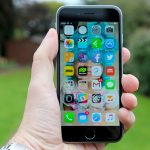
As expected, Apple has broken its Q4 iPhone sales record, moving 48.04 million smartphones last quarter. That is an improvement of 22.33 percent year-over-year, from the 39.27 million units sold in Q4 FY2014. The boost in revenue is even higher at 36.03 percent, rising to $32.2 billion from $23.67 billion a year prior.
Android users seem to have contributed a great deal to Apple's record quarter, as 30 percent of iPhone buyers last quarter were Android switchers, according to the company's CEO, Tim Cook.
By raising the price, HTC is making sure One A9 will flop

When HTC announced One A9, the Taiwanese maker said that its new smartphone would only cost $399 when it goes on sale in US. But, as it turns out, that is in fact, a "very limited-time promotional offer", as the price will be bumped up by $100 shortly after it starts shipping.
How limited is that offer? Well, the $399 asking price only applies to orders placed before 12:01 am on November 7. Afterwards, buyers will have to shell out $499 to get their hands on the smartphone. It is a very strange decision, as the lower cost is one of the few things that One A9 has got going for it.
Mihăiță's Bio
Mihăiță Bamburic is the resident staff writer, reporting technology news from Europe. He focuses on mobile computing, covering the latest smartphones, tablets, laptops and apps. He also frequently writes editorials, analyzing companies and products that have a deep impact on consumer-facing technology.
Ethics Statement© 1998-2025 BetaNews, Inc. All Rights Reserved. Privacy Policy - Cookie Policy.
